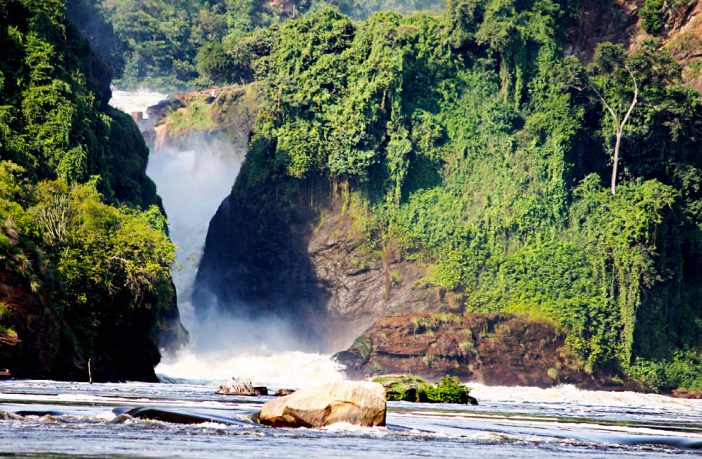- Stop EACOP members are deeply disturbed and gravely concerned by recent developments: reports indicate that TotalEnergies has started oil drilling activities in Uganda’s Murchison Falls National Park (MFNP).
- This move by the global energy giant threatens not only the biodiversity of the park but also its standing as a beloved tourist hub and a key contributor to Uganda’s economy.
The tourism industry, heavily reliant on the park’s existence, plays a crucial role in Uganda’s economy, generating significant revenue and creating countless livelihoods. In 2022 for instance, tourism accounted for 59% of Uganda’s exports, earning the country USD 1.047 billion. Drilling for oil in MFNP puts these benefits at grave risk, threatening the socioeconomic fabric of Uganda.
Murchison Falls National Park, which is one of Uganda’s oldest, largest and most visited national parks, is a sanctuary of global significance, recognized for its irreplaceable biodiversity and unparalleled natural beauty. The park is home to 76 species of mammals -including elephants, lions, and giraffes-, and over 450 bird species, making it a remarkable and unique, irreplaceable ecosystem.
The park is also home to the Murchison Falls-Albert Delta Wetland System, a Ramsar Site of international importance. The Ramsar site is an important spawning ground for the Lake Albert fisheries. In 2018, Lake Albert accounted for the highest fish catch, 43%, in Uganda. Fishing is a multi-million dollar industry in Uganda and the sector employs over 5 million people (direct and indirect employment). The Lake Albert fisheries are being put at risk by Total’s oil drilling in MFNP as the oil company’s activities are within the Area of Influence of the Murchison Falls-Albert Delta Ramsar.
Amidst the above, Total continues its greenwashing, noting that the drilling rig in MFNP “is painted with beige color to resemble the surrounding Savannah grasslands” to supposedly reduce the impact on wildlife. Total regularly alleges that its oil activities will only affect 0.003% of MFNP, ignoring that the impacts go way beyond the surface of the well pads. Roads have been built inside the park, with approximately 600 truck trips registered through the park per month during the construction phase. Over 2,000 trips a day (between wells) during the exploitation phase, translating into 61,600 a month, are expected.
The impacts of oil activities on wildlife are already very real. In particular, fleeing the noise and dust, elephants are increasingly going out of the national park, destroying the crops of neighboring communities and endangering men, women and children. Women and children have been killed by elephants in Buliisa district, where MFNP is partly located, and Total’s Tilenga oil project activities are concentrated.
The decision by TotalEnergies and its partners to drill for oil within MFNP, while ignoring the biodiversity conservation, climate change and socio-economic risks of their ill-conceived Tilenga and EACOP projects, is a direct contradiction to the global urgency to protect our remaining wild spaces and reduce fossil fuel reliance. It is clear that despite the global outcry and robust resistance from frontline communities and environmental groups, the interests of these companies are primarily focused on profit, with scant regard for the devastating environmental and socio-economic consequences their actions may unleash.
Author: Bryan Groenendaal















